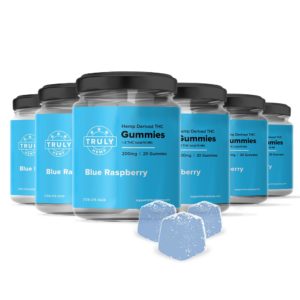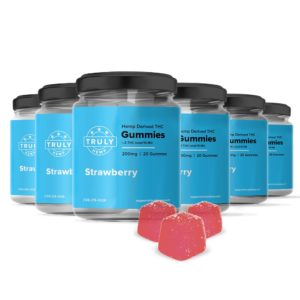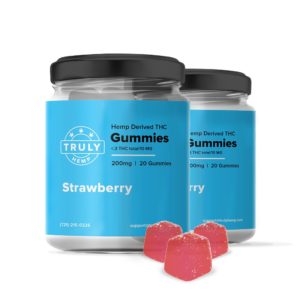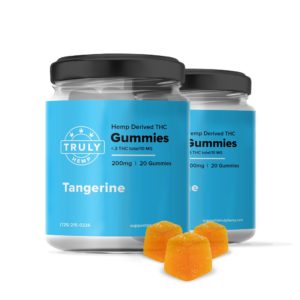We have all heard about THC and closely relate it to the psychoactive properties of marijuana. However, did you know that there are different types of THC? Most people are only familiar with Delta 9 THC, as it is the active compound in weed that will give you that “high feeling”. Delta 8 THC is now being looked at as it offers similar properties to Delta 9 but is hemp-derived. Let’s find out more about Delta 8 vs Delta 9 and how they are similar and different.
What is Delta 8?
Delta 8 THC may also be referred to as Delta 8, D8, Delta-8, Delta-8-THC, Delta-8-tetrahydrocannabinol, or Δ8 THC. It is new to the market and most consumers have never heard about it. This form of THC was discovered in 1975 and happens to be the fourth most researched cannabinoid.
In 1995, notable Israeli scientists conducted a study on pediatric cancer patients who were struggling with nausea due to chemotherapy treatments. With over 480 cases, they had a 100% success rate in treating vomiting.
The chemical makeup of Delta 8 THC differs from Delta 9 only by one atomic bond. D8 actually only makes up 0.01% of the hemp plant. Since it is only found in small amounts in hemp, processors must extract and concentrate Delta 8 into products such as tinctures, oils, edibles, and sprays.
What is Delta-9 THC?
Delta 9 THC happens to be cannabis’s most popular compound. It is the main reason why cannabis remains illegal in many parts of the world. There are some areas across the United States that have legalized the use of marijuana, including Colorado, California, and Nevada.
Delta 9 THC is also being used for medical purposes and may be legal or available for these purposes in a number of other states. Common forms of Delta 9 THC include edibles, sprays, smoking, vape, and topicals.
Hemp plants contain less than 0.3% THC, and marijuana plants will have a high level of Delta 9 up to 30%. Marijuana concentrates and other extracts could have as much as 50% Delta 9 in them.
Delta 8 vs Delta 9 THC
Delta 8 and Delta 9 share both similarities and differences. Both are tetrahydrocannabinol and contain similar chemistry. They are only 1 carbon atom apart. Delta 8 and Delta 9 both have psychoactive properties. However, Delta 8 has a very low psychotropic potency. Delta 9 is well known for these properties, especially in marijuana.
So, Delta 8 does have a bit of an edge but it is nowhere near what users talk about when using a product that is high in Delta 9 THC. In fact, many people who turn to Delta 9 for medicinal purposes are now considering Delta 8 products because it provides overall wellness without the large amounts of psychotropic potency.
Delta 9 will work with CB1 receptors. Delta 8, on the other hand, works with CB1 and CB2 receptors. CB1 receptors are primarily within the nervous system, connective tissues, gonads, glands, and organs. CB2 receptors are primarily in the immune system.
There are many tissues throughout the body that contain both receptors, and more will be unveiled with time and research. So, Delta 8 has more of a chance to work with more areas within the body. This is why it is widely being studied to understand more about its properties and the wellness support it can offer.
There are three main differences between Delta 8 THC and Delta 9 THC:
- Molecular – Delta 9 has a double bond on the 9th carbon, while Delta 8 has a double bond on the 8th carbon. They are only one atom apart, but they are very different.
- Availability – Delta 8 is not as abundant as Delta 9 in the cannabis (marijuana) plant. Delta 8 derives from hemp and only comes in small amounts. However, new techniques are making Delta 8 widely available and this is why many products are hitting the market. Since hemp is legal, Delta 8 falls under the 2018 Farm Bill. In the near future, Delta 8 will be available almost anywhere.
- Psychoactive – Delta 8 has a small amount of psychoactive properties. Delta 9 on the other hand is known for its high potency levels and psychoactive properties. This is what makes Delta 9 illegal in many areas.
How Are They Both Produced in the Hemp Plant?
Delta 8 THC is produced in small amounts in the hemp plant through biosynthesis of cannabinoids. It begins with the conversion of cannabigerolic acid (CBGA) into tetrahydrocannabinolic acid (THCA).
The acid forms of hemp cannabinoids will not produce any psychoactive properties. This occurs when converted to the neutral form, from THCA to THC. When exposed to heat or decarboxylation, the cannabinoids convert from their acid forms into their neutral forms. So, when exposed to heat THCA will transform into Delta 9 THC. However, the process does not stop here.
It is through an aging process where the plant is exposed to light and air. This is when the neutral THC will transform into Delta 8 THC. During the biosynthesis of hemp, the cannabinoids will play an important role in creating other cannabinoids.
Legalities of Delta 8 vs Delta 9
The legalities of these two THC’s are on two different ends of the spectrum. When the 2018 Farm Bill passed, it legalized hemp-derived products that contained less than 0.3% Delta 9 THC. Delta 8 happens to fall into this category. It is hemp-derived and has very low levels of Delta 9.
So, Delta 8 is legal across the United States, except for Alaska, Arizona, Arkansas, Delaware, Idaho, Mississippi, Montana, Rhode Island, and Utah. Delta 9 on the other hand is only offered in a few states where marijuana has been legalized, which includes Colorado, Washington, Alaska, Oregon, Washington D.C., California, Maine, Massachusetts, Nevada, Michigan, Vermont, Illinois, Arizona, Montana, New Jersey, and South Dakota.
Delta 8 THC happens to be the first commercially available federally legal form of THC. Delta 8 is listed as a schedule 1 substance, but it is legal under the Farm Bill. So, this means as long as the Delta 8 product is produced from a hemp plant then it is legal. This happens through a conversion process where CBD is converted into Delta 8.
It is expected that Delta 8 THC will make waves in the near future, as more people find out about this form of THC and everything it has to offer.
Truly Hemp
Truly Hemp offers high-quality Delta 8 products which include tinctures, edibles, gummies, vape cartridges, and more. We invite you to shop our product line and let us know if you have any questions. We hope that this article has helped you understand the differences between Delta 8 vs Delta 9.






